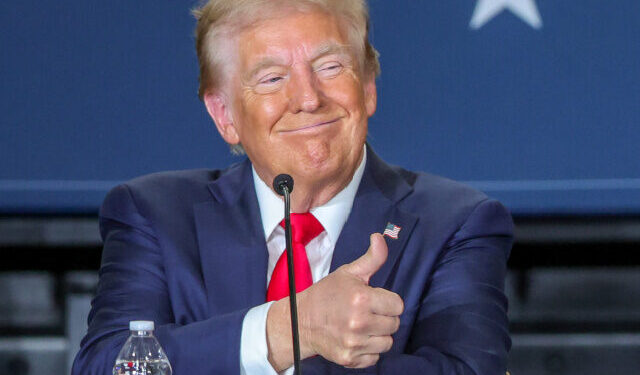In a rare Saturday night showdown on Capitol Hill, the Senate voted 51-49 to proceed with President Trump’s sweeping budget reconciliation package — dubbed the “Big, Beautiful Bill.” The late-night vote sets the stage for what could become the signature legislative victory of Trump’s second term, covering everything from border security to tax relief.
This crucial procedural win clears the way for formal amendment votes starting late Monday — and if momentum holds, a final vote could land just in time for a July 4th signing ceremony, perfectly timed for a president who knows the power of a patriotic photo-op.
President Trump’s bill is packed with America First priorities that conservatives have long championed:
- Border Security: More funding and expanded authority to secure the southern border.
- Energy Independence: Rollbacks of Biden-era green mandates and incentives for domestic production.
- National Defense: Boosted military funding aimed at readiness and deterrence.
- Tax Reform: Permanent extension of Trump’s 2017 tax cuts, plus no taxes on tips and overtime — a huge win for working-class Americans.
While the vote ultimately succeeded, it wasn’t without friction — especially within GOP ranks. Vice President JD Vance played a key role in behind-the-scenes negotiations, working closely with Senate Majority Leader John Thune (R-SD) to bring reluctant Republicans on board.
Though Vance’s tiebreaker wasn’t needed, his influence was clear. After hours of huddled talks in Thune’s office, Sens. Mike Lee (R-UT), Rick Scott (R-FL), Cynthia Lummis (R-WY), and Ron Johnson (R-WI) finally agreed to back the motion — though it’s unclear what specific concessions sealed the deal.
Two GOP Senators — Thom Tillis (R-NC) and Rand Paul (R-KY) — voted against the motion, each for different reasons.
- Tillis opposed Medicaid-related provisions, echoing talking points reportedly influenced by far-left policy shops. His resistance prompted a blistering Truth Social post from Trump, calling for a primary challenge before the vote even wrapped.
- Paul, ever the fiscal hawk, opposed the bill for not going far enough to slash mandatory spending. Still, his lone vote highlighted the tension between idealism and pragmatism on the Right.
Even moderates like Susan Collins (R-ME) and Lisa Murkowski (R-AK) expressed hesitation. Murkowski only backed the motion after a series of personal carveouts for Alaska were baked into the latest draft.
While Democrats couldn’t stop the bill from advancing, they’re not done stalling. Senate Minority Leader Chuck Schumer (D-NY) plans to delay next steps by forcing a full read of the bill — a move that could eat up 15+ hours. Yet, barring any major setbacks, amendment votes will begin late Monday night, with final passage possibly arriving Tuesday morning.
The House isn’t expected to take it up before Thursday, but Trump’s team remains confident they’ll get it done by Independence Day.
For conservatives, this bill represents more than just policy — it’s about momentum. If passed, it gives Trump and Republicans a strong legislative victory heading into the midterms, one built on tax relief, border enforcement, and economic strength. It reasserts the party’s commitment to limited government and pro-growth principles while drawing a sharp contrast with the bloated spending and bureaucratic overreach of the Biden years.
And with Trump watching closely, every Senator now knows — this vote could define their political future.
Stay tuned. The sausage-making isn’t over — but the grill is heating up.




















